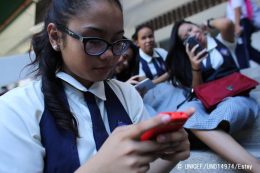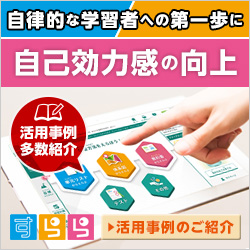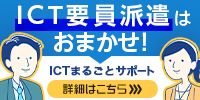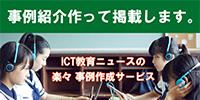2016年6月8日
若者の10人中8人がネットの危険性を認識 ユニセフ調査
ユニセフ(国連児童基金)は、世界25カ国の1万人以上の18歳の若者を対象に、インターネットの利用に関する意識調査を実施し、その結果を『リスクと可能性:インターネットとともに育つ』としてまとめ、公表した。
『リスクと可能性:インターネットとともに育つ』によると、18歳の10人に8人が、子どもはインターネットを通じて性的搾取の被害に遭ったり、だまされたりする危険があると認識。そして、同年齢の10人に5人が、友達がインターネット上でリスクのある行動をとっていると考えていることが分かったという。
回答した若者の90%近くがインターネット上のリスクを避けられると回答。およそ10人に6人が、インターネット上で人と知り合うことは、ある程度またはとても重要だと回答した。しかし、相手が身分を偽っていた場合に確実に見抜けると答えたのは36%にとどまった。
女の子の回答者の67%は、インターネット上で性的な内容のコメントや要求があったら不安だと答えたのに対し、男の子ではその割合が47%にとなった。また、オンラインで実際に危険な目にあったときに、親や先生に相談するという回答よりも、友達に相談するという回答の割合が高かった一方、友達がオンラインで危険な目にあったときにどのように助けるか確実に知っている、と答えたのは半数以下だった。
関連URL
最新ニュース
- 漢検協会とベネッセ、初コラボ 進研ゼミ会員の小・中学生が選ぶ「今年の漢字」(2024年12月13日)
- AI型ドリル搭載教材「ラインズeライブラリアドバンス」が「高知家まなびばこ」とデータ連携開始(2024年12月13日)
- コドモン、広島県三原市の保育所等13施設にICTサービス「CoDMON」導入(2024年12月13日)
- 陸前高田市、返済不要の給付型奨学金事業の資金調達で1600万円の目標金額達成(2024年12月13日)
- ライフイズテック、中高生向け「ライフイズテック スプリングキャンプ2025」春休み開催(2024年12月13日)
- サイバー大学、「Times Higher Education Online Learning Rankings 2024」でブロンズ評価を獲得(2024年12月13日)
- プログラミングスクール受講生で最も多い年代は20代、平均年齢は33.8歳=「 CloudInt」調べ=(2024年12月13日)
- 不登校・行き渋りの子どもがいる親1000名へのアンケート調査 =サイボウズ ソーシャルデザインラボ調べ=(2024年12月13日)
- 大阪大学、デジタル学生証・教職員証の提供を2025年1月にスタート(2024年12月13日)
- 「デジタルハリウッドSTUDIO」STUDIO渋谷、AIクリエイティブデザイン講座を開講(2024年12月13日)











